|
“You can't stop the waves, but you can learn to surf.” ~ Jon Kabat-Zinn Do you find meditation challenging? Perhaps you became interested in meditation because you thought it would help you gain control over your mind. However, when you sat down, closed your eyes, and tried your best to experience the bliss of pure consciousness, you likely found yourself distracted by a constant stream of thoughts and feelings. Instead of an expansive, oceanic experience of universal oneness, it was more like floating helplessly on the surface of an angry sea- the waves and currents tossing you around and dragging you under. This experience can be very discouraging, perhaps leading you to believe that you're doing it wrong. You might even feel like your inability to stop thinking during meditation makes you a failure. Maybe meditation is just not meant for you?
But don’t give up hope just yet! You’re being way too hard on yourself! Trying to stop your mind from creating thoughts is like trying to stop the ocean from creating waves. It’s impossible! The ocean will always generate waves- that’s what the ocean does. Likewise, the mind will always generate thoughts because that’s what the mind does- that’s what the mind is. Meditation is not so much about stopping your thoughts as it is about stopping your resistance to them. It’s not about striving for complete inner silence, it’s about training yourself to feel at ease with the passage of time- learning to breathe, relax and be at peace as time goes by. As the author Sharon Salzberg explains, “We don’t meditate to get better at meditating, we meditate to get better at life.” If you are meditating and you find yourself distracted by a thought, instead of resisting it or feeling guilty about it, ask yourself where that thought came from. Why is it coming up now? How does it make you feel inside? What is the underlying emotional energy attached to the thought that needs to be recognized and released? As the saying goes, you’ve got to feel it to heal it. By going with the wave to the source of the thought, as opposed to shutting it out, you can begin the process of healing and letting go. Now you are free to move back into the infinite stillness of the eternal now, appreciating the precious space between thoughts... until the next wave arrives.
2 Comments
“If you think you are enlightened, go and spend a week with your family.” ~ Ram Dass As the holidays approach, it will soon be time to gather with family once again. However, most people who read this week’s quote know exactly what Ram Dass is talking about. You might be doing really well on your personal journey- you might see yourself as strong, healthy, emotionally balanced and mature. And then you get together with your family and everything falls apart. This time of year can often be emotionally challenging, mainly because spending time with family has a way of bringing out the worst in everyone. But, why does this happen? And what can you do to prevent it?
Of course, the quickest way to bring harmony to your family dynamic is by fundamentally changing every family member so that they all behave like you. Unfortunately, that’s not an option. It’s very difficult to change other people- it’s hard enough to bring positive change to your own life. Instead, you have to figure out how to love people for who they are, despite their flaws. As the writer and mystic Thomas Merton says, “The beginning of love is to let those we love be perfectly themselves, and not to twist them to fit our own image. Otherwise, we love only the reflection of ourselves we find in them.” So, next time you get together with family, see if you can prove Ram Dass wrong. That is, see if you can remain calm on the inside even when emotions start to escalate. If you do find yourself getting triggered, think of it as an opportunity to heal your past wounds instead of making those wounds worse. Most importantly, practice kindness and unconditional love towards others. Remember, it is one thing to reach a state of total inner peace while you are alone on your meditation cushion, but the real challenge is maintaining that inner peace when faced with difficult circumstances. “I learned that courage was not the absence of fear, but the triumph over it. The brave man is not he who does not feel afraid, but he who conquers that fear.” ~ Nelson Mandela What are you afraid of? According to this week’s quote, courageous people still experience fear, they’re just able to conquer it. Which all sounds great, but how exactly do you conquer fear? It starts by understanding and accepting fear as a valid emotion. Everyone feels fear at some point in their lives, it is the body’s natural response to a perceived threat. Imagine, for example, that you are on hike and you almost step on a snake. Your whole system will automatically go into a fight, flight or freeze response. Similarly, you might feel a flash of fear when you hear about a new wave of layoffs coming up at work. In both cases, it is your basic safety and security that is being threatened. The threat of loss is also responsible for a great deal of fear. Whether it’s the fear of losing your money, your health, your sanity, your loved ones, your freedom, or your life- it’s all based on a similar threat of loss.
Since avoiding fear is not really an option, what can you do to overcome it? One way is by comparing fear with its opposite emotion, which is love. Whereas fear feels like having ice-cold water inside your guts, love feels more like drinking a hot cup of cocoa- an inner warmth slowly spreading from your chest throughout your whole body. Fear feels tight, closed and rigid compared to love, which is more of a soft, comfortable, open feeling. When you are afraid, you hold your breath in anticipation of what will happen next. When you are in love, you breathe freely and focus your awareness in the present moment. As the saying goes, only love can overcome fear. So, the next time you feel afraid, take a moment to feel all the physical sensations associated with that fear. Then, with full awareness, let that cold internal feeling melt into the warmth of your love. Doing so may not directly eliminate the perceived threats to your safety or security, but it will help you have courage in the face of adversity. “There is no better time than the autumn to begin forgetting the things that trouble us, allowing them to fall away like dried leaves.” ~ Paul Coelho As we enter into the darkest time of the year, it is worth taking a moment to recognize how the seasons are a reflection of the larger cycle of life. Spring, for example, is analogous with birth and new beginnings. Summer is like the prime years of your life, autumn the later years, and then winter comes at the end, representing death. Of course, winter is always followed by spring, the return of the light and the rebirth of life. That’s why you see so many skeletons, ghosts and gravestones during Halloween. It’s because we are celebrating the arrival of the darkness. The days will only get darker between now and the winter solstice and, rather than resisting this change, Halloween is how we embrace the darkness- recognizing that death is an essential part of the natural cycle.
Fall is also the time of year where, like a deciduous tree, you have the opportunity to let go of that which no longer serves you. One way to do this is to explore and embrace your own darkness. If you carry emotional baggage like anger and resentment that is weighing you down and limiting your ability to enjoy life, now is a good time to honestly reflect on that. How much longer do you really need to suffer on someone else’s behalf? As the saying goes, holding on to anger is like grasping a hot coal in your hand with the intention of throwing it at someone else. In the end, the only person that gets burned is you. Similarly, stewing in resentment is like drinking poison and expecting the other person to suffer the consequences. So, take some time to explore your own darkness this Halloween. What you find might terrify you, but that’s kind of the point. Besides, you can’t let go of something without first recognizing what it is that you’re still holding onto. “It is only by grounding our awareness in the living sensation of our bodies that our real presence can awaken.” ~ G.I. Gurdjieff Life can sometimes be overwhelming. Thoughts and emotions have a way of feeding off each other, often spiraling out of control, resulting in panic, anger, sadness, or confusion. As you probably know, the best way to prevent this is to ground yourself. But what does being grounded even mean? A good way to understand grounding is to imagine an ungrounded electrical circuit. It will function just fine but, if a surge of electricity occurs, the circuit will get hot, begin to spark, and eventually melt. By grounding a circuit, you create a pathway for excess energy to be sent into the earth before it can do any damage.
What does this have to do with you? Like an electrical circuit, you also have energy running through your system. Although your physical body exists in solid form, your thoughts and emotions exist as energy. Your sense of self, memories, fears, hopes and dreams all exist as thoughtforms, which are essentially electrical currents running through your nervous system. When your thoughts and feelings begin to overwhelm you, it’s like an ungrounded circuit getting too hot. Maybe that’s why reaching an emotional breaking point is commonly referred to as having a meltdown. The trick is to ground your excess energy before it has a chance to do any harm. There are many proven ways to ground yourself, including walking barefoot on the earth, eating root vegetables, meditating, and taking mineral salt baths. You can also imagine a grounding cord that extends from your tailbone down to the center of the Earth. However, in line with this week’s quote, one of the most effective ways to be grounded is to bring your awareness into your physical body. You can sometimes get so identified with the energetic, metaphysical aspect of your being that you completely forget about your body. To remedy this, focus your awareness internally, all the way down to your bones, the most solid part of your being. The next time you feel your mental/emotional energy spiking, simply ground into your body. By bringing your awareness into your body, you create an anchor to something stable within, grounding your energy into your physical being before it becomes too much to handle. By grounding into your body, you can remain calm and centered on the inside regardless of what is happening on the outside. “Patience is not the ability to wait, but the ability to keep a good attitude while waiting.” ~ Joyce Meyer Are you good at waiting? If so, then congratulations! You have conquered perhaps the most challenging aspect of human existence. To master the art of patience is really to master the art of life. That’s because impatience depletes your energy, robbing you of your sense of humor and your capacity to experience joy in the moment. While everyone knows that patience is the key to waiting, most people hate waiting more than anything else. What can you do to become a more patient person? It begins by understanding what patience really is.
As Joyce Meyer explains in this week’s quote, patience is not so much your ability to wait as it is your ability to regulate your emotions while waiting. Next time you are feeling impatient, pay attention to how your body feels. If your stomach is in knots and your chest is tight, it can be very difficult to breathe. The same is true if your chin is tucked and your jaw is clenched. With all this inner tension, it’s no wonder that waiting can feel so awful. When you are impatient, every minute that goes by feels like torture. However, you are not only the victim that has to endure this torture- you are also the torturer. The secret to being patient is realizing that tensing up and holding your breath doesn’t actually make time speed up, it just makes you feel bad inside as time goes by. Compared to impatience, patience actually feels pretty nice. Instead of a heavy, constricted experience- as if the walls were closing in around you- patience feels light and expansive. So, stop tying yourself in knots every time you have to wait. Impatient people want to move on to the next moment so badly, they completely forget to enjoy this one. Patient people, on the other hand, are just happy to be here, regardless of how long things take. "Peace is present right here and now, in ourselves and in everything we do and see. Every breath we take, every step we take, can be filled with peace, joy, and serenity. The question is whether or not we are in touch with it. We need only to be awake, alive in the present moment." ~Thich Nhat Hanh What can you do to find inner peace?
Thich Nhat Hanh would tell you that peace is not something that you can discover, it is something that you are. Your inner peace is a direct reflection of the peace that you perceive in the outside world. In other words, to find harmony on the inside, first tune-in to the harmony that’s all around you. One way to find more peace in the world is by noticing the silence between sounds. Silence is the constant background against which all noise takes place. Any sound you hear arises from, and eventually returns to, this ever-present stillness. By being aware of the eternal silence present in the background of each moment, you can find peace wherever you go. According to Thich Nhat Hanh, every moment of your day has the potential to be filled with peace, joy and serenity. To achieve this state, all you need to do is be alive and awake right now. When you are fully grounded in the present moment, your mind becomes quiet. That’s because the mind is a problem solver and, when you focus your conscious attention on the present moment, you find there are no more problems to solve. When the mind is quiet, the heart takes over as the center of your awareness. While the mind is always busy judging and criticizing, the heart’s default mode is one of acceptance, gratitude and appreciation. So, if you want to live a more peaceful, joyous life, bring your awareness to the here and now. When you tune-in to the eternal peace of the present moment, you experience life through your heart. And, when you live your life from the heart, joy naturally follows. “Through our eyes, the universe is perceiving itself. Through our ears, the universe is listening to its harmonies. We are the witnesses through which the universe becomes conscious of its glory, of its magnificence.” ~ Alan Watts This week’s quote reminds us that we are at the center of all experience. For example, it is our ears that create the experience of sound. Sound travels in waves, which are essentially vibrations in the air. These air vibrations don’t actually make any noise until they run into an eardrum, at which point they are translated into the experience of sound.
In the same way, your eyes translate vibration into light. Light exists as vibration that, like sound, travels through space in wave form. Only if these light waves encounter an eye, with all its complicated rods and cones, will they be translated into the experience of light, dark, color and form. As Alan Watts would say, "you are an aperture through which the universe is looking at and exploring itself.” The primal energy that manifests as this universe also evolved conscious beings capable of experiencing it. The same intelligent energy that created flowers also created noses that can smell their scent. The same creative force that evolved fruit trees also evolved tongues to taste their juice. So, take the time to smell the roses, bask in the warmth of the sun, enjoy all the sights and sounds that the world has to offer. If you are the universe experiencing itself, then make it the best experience ever! “The only thing you really control is how you react to things out of your control.” ~ Bassam Tarazi This week’s quote is for all the people who are currently suffering from the wildfire smoke. Having made it all the way through the summer without much fire activity, you might have thought that the worst was behind us. However, considering the gray, apocalyptic skies that we have experienced lately, it appears that fire season is very much back.
With the return of the smoke comes the familiar feelings of sadness, worry and desperation. One of the most stressful parts of having a wildfire burning nearby is the feeling of powerlessness- the sense that you don’t have any control over what is happening. Wildfires are literally burning out of control and, unless you are a firefighter, there is really nothing you can do to stop them. However, according to Bassam Tarazi, even though life is unpredictable, suffering is still optional. You can’t really prevent bad things from happening in life, the only thing you can control is the way you react when they do. So, what can you do to get through these difficult times? The best advice we can offer at this time is to focus on taking care of yourself. Take a long bath, get a massage, practice yoga- do the all the things that bring you into grounded, conscious alignment with your Source. If you can't go outside due to poor air quality, remember that you can always go inside by practicing meditation. On clear days, make it a priority to enjoy the sunshine and blue sky. Finally, try to breathe deeply and fully whenever possible, savoring the luxury of breathing clean, fresh air when it's available to you. “Be an artist of consciousness. Your picture of reality is your most important creation. Make it powerfully, profoundly beautiful.” ~ Alex Grey Last week we discussed the importance of connecting to the love in your heart and then expressing that love in the form of kindness. However, kindness is not the only way to express love in the world, there is also creativity. Alex Grey talks about a “cosmic creative force” that is fundamental to all life. This creative force is the evolving, intelligent energy that “manifests our universe and flows through all beings and forms.” Everyone you meet and everything you experience is an expression of this creative force. According to Alex Grey, creativity is spirit in action. When you express yourself in a creative way, you allow the creative force of the universe to work through you.
This week’s quote is a reminder that creativity is not limited to artistic expression. Whether you are aware of it or not, you are the creator of your reality- you are the artist of your life. Reality is the ultimate block of clay which can be shaped and molded into whatever your heart desires. Consciously creating your reality means manifesting from a place of love instead of a place of fear. That’s because, to create something beautiful, you first need to conceive of it in your mind. If your internal picture of reality is riddled with fears and anxieties, your reality is going to reflect that. So, challenge yourself to maintain a profoundly beautiful picture of reality, allowing the creative force of the universe to flow through your heart and create the life of your dreams. “This is my simple religion. There is no need for temples; no need for complicated philosophy. Our own brain, our own heart is our temple; the philosophy is kindness.” ~ Dalai Lama This week’s quote by the Dalai Lama is a reminder that spirituality doesn’t need to be complicated. You don’t need fancy cathedrals or elaborate rituals to connect to your higher power. All you need to do is connect to the love that’s already in your heart. However, consciously connecting to the love that is present in your being is only half the equation. To be fully expressed, this love needs to be put into action.
So, what can you do to become a kinder person? Perhaps kindness can be best summed up as doing what love would do- behaving in the world the way that love would behave. Kindness means having compassion for others and doing what you can to help them on their path. Remember, your heart may be the temple where you can connect with your inner love, but it is your kindness towards others that allows you to share this love with the world. “You took birth here because you have certain work to do that involves the suffering you do, the kinds of situations you find yourself in. This is your curriculum. It’s not an error. Where you are now with all your neurosis and your problems; you’re sitting in just the right place." ~ Ram Dass The purpose of this week’s quote is to remind everyone that everything is ok. It is easy to fall into the trap of believing that you are living the wrong life. You might carry the belief that, at some critical point in your journey, you made the wrong choice or the wrong decision. You might even believe that this reality you are currently experiencing is not your true reality- that this isn’t the life you are supposed to be living.
Thankfully we have people like Ram Dass to reassure us that everything in life is exactly as it should be. In fact, there is no other way than this. Similarly, wherever you are on your personal journey, that is exactly where you are supposed to be. If, as Ram Dass says, you are here on Earth to grow as a soul, then even your challenges can be seen as part of the overall perfection of life. Besides, without challenges, there would be nothing to overcome and, therefore, no growth would ever take place. When you stop clinging to an image of how you think life ought to be, you begin to appreciate life as it actually is. “The primary cause of unhappiness is never the situation but your thoughts about it.” ~ Eckhart Tolle Do you want to experience more happiness in your life? Of course! Who doesn’t want that? However, it’s not like you can wave a magic wand and now everything in your life is perfect. It’s more about learning to be happy even though your life is imperfect. To do this, you first have to take responsibility for the role you play in your own suffering. According to Eckhart Tolle, it’s not life’s situations that cause you to be unhappy, rather it’s your thoughts about these various situations that bring you down. Understanding this simple concept is one of the keys to inner freedom.
Problems, for the most part, exist as thought forms in your mind. Every so-called “problem” in your life exists primarily as a situation or as a set of circumstances. Situations and circumstances have no emotional weight of their own- good or bad, things simply are the way that they are. You suffer when you resist what already is. As a reasonable and intelligent member of society, you have a pretty good idea of the way things should be. When the reality of the situation is different from your ideal, it makes you feel bad. That’s how people end up with the weight of the world on their shoulders- they falsely believe that their suffering over a set of circumstances somehow helps to solve the problem. But, all the stress and anxiety in the world is not going to change what has already happened. And feeling stressed out over the way things are right now has no measurable effect on what happens next. When you live your life in perpetual acceptance, nothing can bother you anymore. You soon discover that your happiness is no longer reliant on outside circumstances, rather it relies upon your ability to create and maintain a state of inner harmony wherever you go. So, the next time that things go differently from the way you would prefer, try accepting the situation rather than rejecting it. It won’t change what just happened, but at least you will no longer have to suffer from it. "This is the pathless path. Where the journey leads is to the deepest truth in you. It is really just returning to where you were initially before you got lost." ~ Ram Dass This week’s quote is another one of those sayings that sounds very wise until you realize that it leaves you with more questions than answers. How can a path be pathless? What is the deepest truth in you? And, where were you initially before you got lost?
Let’s start with the pathless path. Ram Dass begins by reminding us that the spiritual path is a metaphor. He would tell you that, to reach your spiritual goals, you don’t actually need to go up a winding path to the top of a mountain- you don’t need to go anywhere at all because the only place you can ever be is right here. Also, the only time there can ever be is right now. If enlightenment does happen in your lifetime, the place where you will be is here- and the time will be now. The next question is, what is the deepest truth in you? Of course, only you can answer that. For some, the deepest truth is that they are love. Other’s may discover a deep well of compassion for the suffering of all beings. There is also the realization that you are it- that there is no fundamental difference between you and the universe that you exist in. The purpose of the spiritual journey is to discover your deepest truth, whatever that may be. Finally, where were you before you got lost? According to Ram Dass, the real reason you are here on earth is to awaken from the illusion of separateness. Before you were born, while you were still in the womb, all was one. There was no sense of self and no idea about other. There were no thoughts of “I” or any notion that you were something separate from your environment. In fact, there were no thoughts at all, just the bliss of pure consciousness. You were born with this unity consciousness but, as you grew up and developed your ego, you become convinced that you are separate from others and from this world. So, where were you before you got lost? The short answer is, you were home. “The meaning of life is just to be alive. It is so plain and so obvious and so simple. And yet, everybody rushes around in a great panic as if it were necessary to achieve something beyond themselves.” ~ Alan Watts What is the meaning of life? Is our time on Earth just arbitrary or is there a greater purpose to existence? We put a great deal of pressure on ourselves to achieve and succeed, always looking for new ways to transform and improve ourselves. While there is nothing wrong with having goals, we are often so busy preparing for life in the future that we completely forget to enjoy life in the present. What if all you needed to do in life was enjoy the experience? What if, as Alan Watts says, the meaning of life is just to be alive?
Since our time here is finite, there is often a nagging feeling that time is running out. This leads to the “great panic” that Alan Watts is referring to, as people rush around trying to get the most out of life- to have as many experiences as they can while they are here. But, unless you learn to slow down and be present, you won’t truly experience anything. That’s because when you are in a rush, your breath becomes short and shallow. You become more anxious and self-absorbed with each passing minute. Someone who is in a hurry is often too caught up in their own thoughts to appreciate the subtle beauty of the world. In contrast, a person who is grounded and present is able to breathe easily, experiencing the richness of life through all five senses. The main difference is that one person is desperately trying to get somewhere, whereas the other person has already arrived. So, take a moment to slow down, breathe and be present with your reality. There’s no need to rush when you are already there. “And into the forest I go to lose my mind and find my soul.” ~ John Muir Are you looking for the next great wellness trend? Something that makes you healthy and happy, puts your mind at ease, and brings you back in touch with your authentic self. The answer might be as simple as taking a walk in the woods- one of the best things you can do for your mind, body and soul.
In Japan, they have taken this notion to a whole other level, creating a practice called shinrin-yoku, which translates literally to “forest bathing” or “absorbing the forest atmosphere.” While no actual bathing takes place, the idea is to open your senses to the natural environment. Studies have shown that, by simply being present with their experience, taking in all the sights and sounds and smells of the forest, people have been able to lower their blood pressure, heart rate and stress levels. In addition, those who spent at least 20 minutes immersed in a natural setting regularly reported increased levels of happiness and well-being. To be clear, when John Muir talks of going to the forest to lose his mind, he doesn’t mean succumbing to madness so much as quieting down the chatter in his head. Walking in the woods calms the inner voice, giving the thinking mind a chance to rest. When you allow the stillness that you discover in nature to permeate your inner world, you experience inner peace. Ultimately, by dropping the thinking mind, you come to your senses- allowing your soul to resonate with the tranquil beauty of the natural world. So, if you are looking for a quick and easy way to boost your well-being, look no further- go take a walk in the woods! "Keeping your body healthy is an expression of gratitude to the whole cosmos- the trees, the clouds, everything." ~ Thich Nhat Hanh Are you a well being? Before you answer that, let's take a moment to figure out exactly what well-being is.
Unlike health, which is defined by the absence of disease, well-being consists of multiple factors. Physical well-being, for example, is about how comfortable you feel in your body. Not just how relaxed your muscles feel, but how healthy your organs are. This includes making the right dietary choices, detoxifying the body and establishing an exercise routine. Mental well-being is the ability to calm the mind, allowing the inner voice to quiet down and be at peace. Emotional well-being concerns your ability to manage stress and to bounce back from adversity. Finally, social well-being relies on your ability to communicate effectively and form meaningful bonds with others. There are other factors involved in your well-being, such as financial well-being and work-related well-being. Suffice to say that well-being is a dynamic state of being alive in which you are not just surviving, you are thriving. The good news is that physical, mental, emotional and social health are all connected. A small improvement in just one area can have a domino effect on the rest. If you get a massage, for example, it relaxes your body, which allows you to release emotional stress and put your mind at ease. Also, since you are now feeling more comfortable in your body, you are more likely to be social and bond with others. So, if you are interested in becoming a well being, don't be overwhelmed by all the steps that are involved. Just start somewhere- a small improvement in one area of your life could be all you need to get started on the road to thriving wellness. “Look deep into nature, and then you will understand everything better.” ~ Albert Einstein This quote by Albert Einstein sounds very true and deep at first, but it actually leaves the reader with more questions than answers. What is it, exactly, that we will understand if we look deep into nature? Does he mean how rocks can teach us about the power of silence or how a tree shows us how to be grounded and flexible? The way the sound of the ocean teaches us to breathe or how the wind teaches us to let go of our attachments? Maybe he meant the way a river teaches us to take the path of least resistance, how an eagle teaches us to take a higher perspective, or how a deer teaches us to be present and aware?
Maybe Einstein is referring to the process of nature- the ongoing cycle of life, death and rebirth. The way that all of life is an interconnected web that strives to maintain balance and harmony. Or maybe he was alluding to a higher, philosophical truth? Like how, if you look deeply enough into nature, you will eventually recognize yourself looking back. It’s probably better that he leaves it open ended since everyone’s experience with nature is going to be different. He is telling us how we can access a higher understanding about life, not what the higher understanding is. What is the truth about life? It’s up to you to look deeply into nature and find out for yourself. "Who looks outside, dreams; who looks inside, awakes." ~ Carl Jung If you could dream any dream you wanted, what would it be? Imagine if there was a Dream App on your phone which allowed you to choose the dreams you were going to have that night. Maybe there would be a drop-down menu of dreams to choose from such as: Flying over the Grand Canyon, Snowboarding on the Moon, Shopping in your underwear, etc. Every dream would be different, but they would all have a certain element of adventure and excitement to them. Afterall, nobody is going to choose to have a boring dream like: Sit in rush hour traffic or Wait in line at the DMV.
That’s because the best dreams are the ones that are unpredictable. Similar to choosing a movie to watch, we are all looking for an experience that elicits an emotional response- one that pulls us in and keeps us on the edge of our seat. Imagine a movie about a woman who is happy in life. Throughout the movie, nothing ever goes wrong, and no conflicts ever need to be resolved. In the end, she is still happy, just like before. What a boring movie that would be! Things just aren’t that interesting without the elements of conflict, drama, and unpredictability. So, keep this in mind the next time you face adversity, or you find yourself in a situation where you have to solve a problem or resolve a conflict. Remember to appreciate the unpredictable nature of existence. Life doesn’t always go according to plan, but that’s also what makes it so interesting. "Flowers are the music of the ground. From Earth's lips, spoken without a sound." ~ Edwin Curran One thing that everyone can agree on is that flowers are beautiful. But why? What is it that makes a flower so beautiful? It could be the vibrant colors, the amazing fragrance, or the intricate way the petals are shaped and arranged. But, beyond the senses, there is more to the beauty of flowers. They are nature’s artwork- an expression of beauty by the formless, creative force that underlies all of existence.
Flowers are also beautiful because of the transformation they have undergone. What was once a tiny seed, grew to be a plant which then blossomed into a flower. Just like how crystals are minerals that have undergone a profound transformation over time, a plant goes through a similar process when it blooms. In a way, a flower shows us the subtle beauty that is inside us all, a beauty that is innate to all life on Earth. Flowers give us hope, encouraging us to undergo our own transformation so that, ultimately, we may blossom and share our unique beauty with the rest of the world. Hello! We’re Nick and Sarah, the owners of Well Being! Some of you may have met us while visiting our shop and spa in Kings Beach, but how much do you really know about us?
We are both from England originally. Nick’s family moved to Walnut Creek, California when he was eight years old. Sarah moved to Tahoe in 2011, while Nick has lived here for over twenty years, after being drawn to the mountains by his passion for snowboarding. We first met in Lake Atitlan in 2008 while backpacking in Guatemala. Sarah visited Nick in Tahoe regularly over the next three years. During this time, we had many adventures together including several visits to Burning Man and a six-month journey through Australia and New Zealand. We were married on 9/10/11 after paddleboarding out to the rocks at Speedboat beach. When the ceremony was over, we “took the plunge” by jumping into the lake! When we are not at Well Being, we enjoy spending time with our two adorable cattle dogs, Blue and Bella, who we hike with every day. We love exploring our natural surroundings, riding our bikes in the forest and paddleboarding on the lake. We also love traveling, getting great massages and relaxing in hot springs. Back in 2013, as two massage therapists with a dream, we created Well Being with the intention of bringing more love, healing and positivity into the world. Our business has evolved over the years, but we still love what we do. Every day we are excited to go to work, doing what we can to provide people with a genuine sense of healing and connection that is so often lacking in today's world. So, next time you are in town, stop by Well Being and say hello! We’d love to get to know you! "Without the rain, there would be no rainbow." ~ Gilbert K. Chesterton What is it about rainbows that always makes you smile? Maybe it’s the dazzling array of color being vividly displayed in a giant arch across the sky. Or maybe, on a deeper level, you understand the metaphor that rainbows only appear when there is rain. In life, there can't be 'good 'experiences without there also being 'bad' ones. It’s like how you can’t experience light without darkness. How you wouldn’t be able to appreciate peace without noise, or relaxation without tension. How would you even know that you are happy, for example, if you had never experienced unhappiness?
Rainbows are also impermanent. They are as beautiful as they are rare, appearing like a miracle in the sky and then fading away. You never really know how long rainbows will last, or if how long it will be before you see another one, so you really appreciate them while they are here. Come to think of it, life is also a miracle that only lasts for a limited time. Just like a rainbow, our impermanence is what makes our time here so precious. So, live your life like there is a rainbow in the sky, savoring the beauty of the experience while it lasts. “The still waters of a lake reflect the beauty all around it. When the mind is still, the beauty of the self is reflected in it.” ~ B.K.S. Iyengar You often hear that meditation is the key to spiritual growth. But, have you ever wondered why? What is the link between meditation and spirituality? What is the point of spending time sitting still with your eyes closed, simply breathing in and out? Especially when you could be doing something more productive like exercising or checking emails. This week’s quote helps to illustrate the link between mind and spirit, by pointing out that, when the mind is still, it reflects the beauty of the self.
Think of meditation as your opportunity to still the waters of your mind. Don’t worry about what the point is, or that perhaps this is all a waste of time, because those are both just thoughts, just more waves in the waters of your mind. Notice your thoughts as they come and go but do not get caught up in them. Identify instead with the ever present witness, the awareness in the background of your mind that notices your thoughts taking place. That calm, silent witness between waves of thought is your true self. Simply breathe and let the mind be still. Just like a lake, when the mind is still, it becomes a mirror- capable of reflecting the beauty of existence, both within and without. "The ripple effect stemming from a single act of love might be infinite in reach.” ~ Narissa Doumani If you throw a stone into calm water, it will produce a series of ripples that travel infinitely outward in all directions. Similarly, the actions that you take in daily life can have far reaching consequences that you might never be fully aware of. A simple act of kindness can produce a positive ripple effect that echoes throughout time. On the other hand, an act of hatred can send negative ripples out into the world which can have a far greater impact than you realize. Knowing this, it is your responsibility to create more positive ripples in this world than negative ones.
How can you accomplish this? Start with being kind to yourself. After all, your actions are a direct reflection of your emotional state. If you are feeling negative inside, then you are much more likely to behave negatively in the world. By practicing self-love, you establish an inner harmony that radiates from your being. The other way to create more positive ripples in this world is by being kind to others. A smile, a compliment or a helping hand can mean the world to someone in need of a pick me up. The idea is that your kindness will inspire others to also act kindly- which will then inspire even more kindness. So, make as many ripples as you can while you are here, knowing that each little ripple of positivity that you create has the potential to become a tsunami. "When you do things from your soul, you feel a river moving in you, a joy." ~ Rumi Do you want to experience more joy in your life? The solution may be easier than you think. To live a more joyful life, simply figure out what things bring you the most joy, and then do those things more often. Everyday, if possible! What brings you joy? That is a question everyone needs to answer for themselves. For some it's skiing or mountain biking, for others painting or poetry. Your source of joy could be gardening, or cooking, or reading, or singing. Joy does not just occur spontaneously- it's something you have to cultivate over time by taking consistent action. There are many things in life that can bring you joy but, to experience joy on a regular basis, you will actually have to do these things regularly.
What all these activities have in common is they give you the opportunity to lose yourself in what you are doing. A chance to enter into the 'zone,' where your mind is quiet and you are fully immersed with the task at hand. When you spend enough time immersed in the flow, you will feel a stirring inside, like a river moving inside your heart. So, what are you waiting for? Go out and find your joy- don't wait around for it to find you. Do the activities that make your inner river flow. By consistently doing the things that bring you joy, your life will naturally become more joyful. |
Like what you are reading? Sign-up here for our weekly newsletter featuring a new inspirational blog every Wednesday.
About The AuthorNick Hughes is a massage therapist, yoga instructor and co-owner of Well Being. Influenced by the ideas of Alan Watts, Eckhart Tolle, Ram Dass, and Deepak Chopra, Nick presents his unique take on human existence with the goal of helping others live a happier life. Archives
July 2024
Categories |






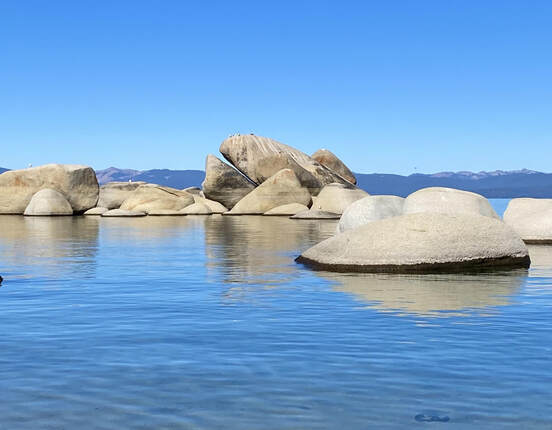



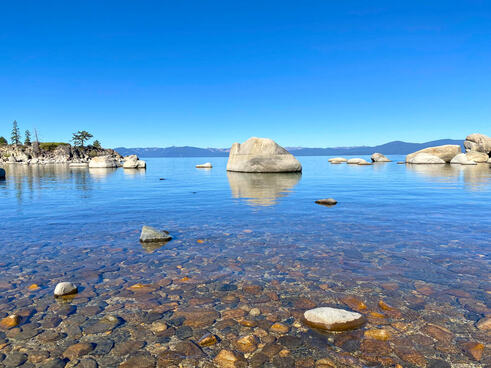
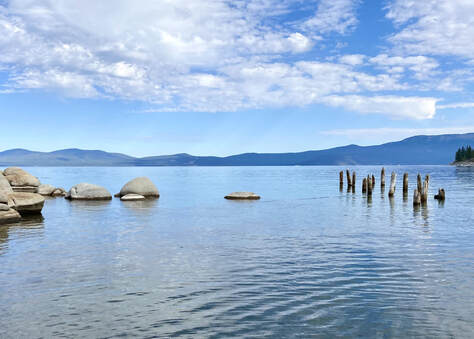
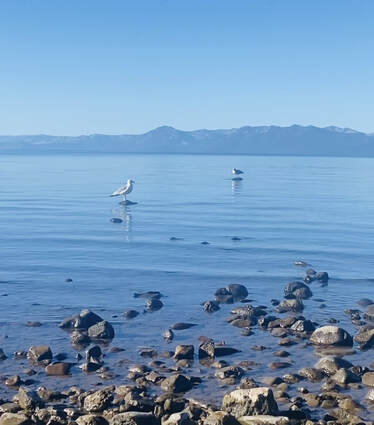
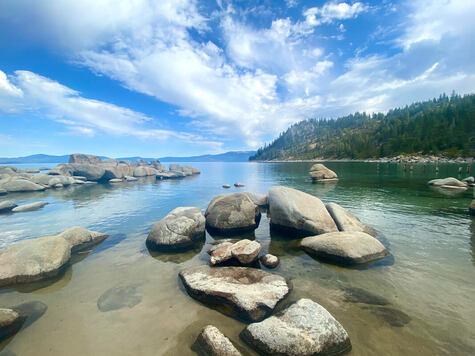
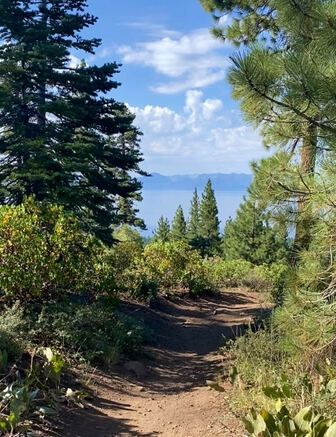











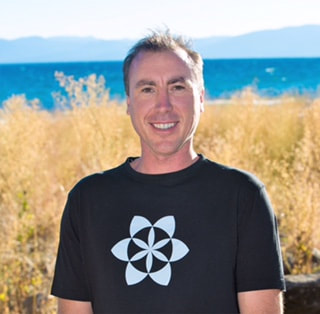
 RSS Feed
RSS Feed